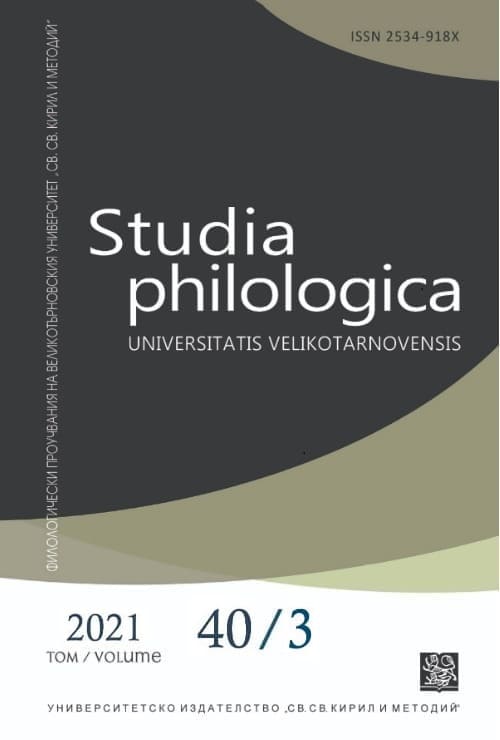Нова концепция за българския сегашен перфект: изпълнява структурни функции, изразява несвидетелственост
A New Conception оf the Bulgarian Present Perfect: Performing Structural Functions, Encoding Non-Witnessing
Author(s): Krasimir KabakchievSubject(s): Language studies, Language and Literature Studies, Theoretical Linguistics, Morphology, South Slavic Languages
Published by: Великотърновски университет „Св. св. Кирил и Методий”
Keywords: present perfect; aorist/imperfect; imperfect participles; non-witnessing; non-grammaticality
Summary/Abstract: In many of the languages featuring a present perfect, its meaning is regarded as a riddle. Bulgarian grammars maintain a severely defective thesis that the present perfect is not formed from imperfect participles, underlying another erroneous thesis, viz., that imperfect participles have no nominal (NP) use. Based on the analysis and other current research undertaken by the author, a completely novel conception of the Bulgarian present perfect is proposed. Just like grammatical phenomena such as gender and nominal determination through articles, the present perfect exercises structural functions and does not possess immanent semantics necessary for communication through natural language. The essence of the present perfect can be found not in something that it signifies but in something that it does not signify: witnessed situations. The present perfect counters the value “witnessed” expressed by the aorist and the imperfect, and its value “non-witnessed” normalizes a certain type of non-grammatical sentences.
Journal: Studia Philologica Universitatis Velikotarnovensis
- Issue Year: 40/2021
- Issue No: 3
- Page Range: 207-218
- Page Count: 12
- Language: English, Bulgarian

